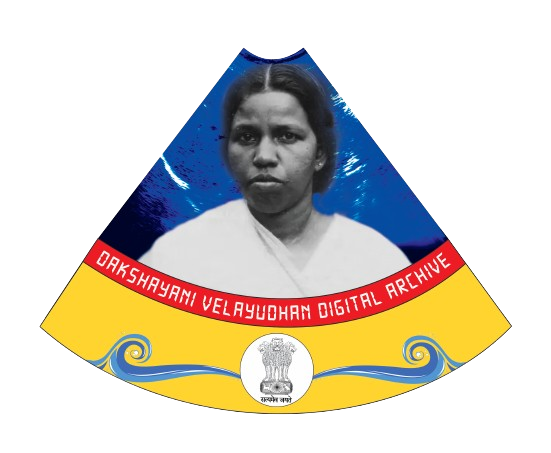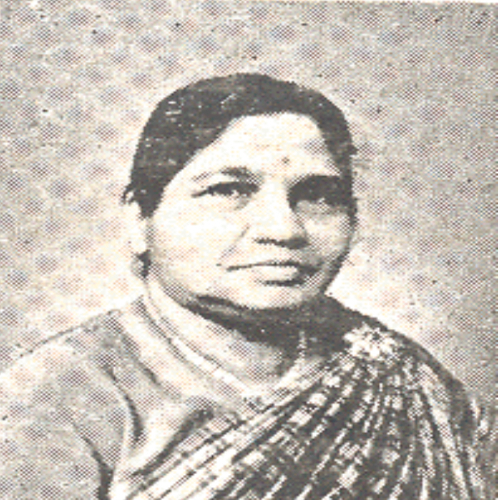Annie Mascarene’s life, spanning from June 6, 1902, to July 19, 1963, is a testament to her trailblazing journey in the political landscape of Kerala and India. Born into a Latin Catholic family in Thiruvananthapuram, Kerala, she broke gender barriers and became a prominent figure in the fight for independence and the framing of India’s Constitution.
Basic details and biography of Annie Mascarene:
| Attribute | Information |
| Full Name | Annie Mascarene |
| Date of Birth | June 6, 1902 |
| Date of Passing | July 19, 1963 |
| Party Affiliation | Independent, National Conference |
| Constituency | Travancore-Cochin |
| Religion | Christian |
| Caste | Non SC/ST |
| Gender | Female |
| Mother Tongue | Malayalam |
| Education | Postgraduate (Double M.A. in history and economics) |
| Committee Memberships | None |
Annie Mascarene emerged as a pioneer in the political landscape, being the first woman to join the Travancore State Congress and a member of the Travancore State Congress Working Committee. Active in the movements for independence and integration with India in Travancore State, she played a significant role in the political developments of the region.
In 1942, during the Quit India Movement, Mascarene joined the cause and was subsequently elected as the secretary of the Travancore State Congress. Her political journey continued as she became one of the 15 women elected to the Constituent Assembly of India in 1946, participating in the drafting of the Constitution. Notably, she served on the Assembly’s select committee that examined the Hindu Code Bill.
Post-independence, Mascarene was elected to the Travancore-Cochin Legislative Assembly in 1948, where she briefly served as the Minister in Charge of Health and Power. In 1951, she made history by becoming the first woman MP from Kerala, elected to the First Lok Sabha as an independent candidate. Her tenure in the Lok Sabha saw her addressing concerns about the under-representation of women in politics.
Contribution to Constitution Making
Representing the Princely State of Travancore and Cochin Union in the Constituent Assembly, Annie Mascarene actively participated in discussions, particularly focusing on the issue of federalism.
Later Contributions
Mascarene’s political career continued with her election to the First Lok Sabha, where she advocated for the increased representation of women in politics. However, her subsequent attempt in the 1957 Lok Sabha elections faced challenges, impacting her political trajectory.
On November 18, 1949, just before the adoption of the Constitution, Mascarene expressed support for the federal framework with a strong central government.
Annie Mascarene’s legacy stands as a testament to her resilience, breaking barriers for women in politics and contributing significantly to the constitutional and political evolution of Kerala and India.
Selected Speeches from Constitutional Assembly Debates:
Provincial Elections[1]
Shrimati Annie Mascarene (Travancore & Cochin Union): Mr. President, Sir, after hearing Dr. Ambedkar’s explanation two days back I thought I would abide by this Article. But after listening to Mr. Munshi’s speech this morning I am provoked to speak again on the subject and resume my old position. Sir, I am a believer in the right of the people of the Province to elect their representatives independent of any control, supervision and direction of any power on earth. I believe that to be democracy. If the Centre is to think that expediency demands that they should supervise and control the election, as one sitting in the Provincial Legislature I can see in the Centre as many delinquencies as they see in us. From this Article it looks as if the Centre is assuming to be the custodian of justice. Well, justice is not in the custody of anybody but of those who are lovers of truth. Mr. Munshi this morning spoke that Article 289 is calculated to defend the rights of the people in the provinces in view of expediency and reality. May I remind him of the expediency and reality of nations in days long gone by-of the Parliament of Rome, of the Long Parliament of England? Cromwell thought that it was expedient to run the administration by a unicameral legislature. The Napoleonic heroes thought that it was expedient to run the administration by a unicameral legislature. But time has proved the effect of those expediencies. What is reality and expediency today is not reality and expediency tomorrow. We are here laying down principles – rudimentary principles – of democracy, not for the coming election but for days to come, for generations, for the nation. Therefore principles of ethics are more suitable to be considered now than principles of expediency. I am a believer in politics as nothing but ethics writ large. I am not a believer in politics as a computative principle of addition, subtraction and multiplication. If this section is to be accepted we are to believe that thereafter the Provincial election will be under the perpetual tutelage of the Centre. That means, Sir, that the integrity of the provincial people is questioned. I wish to turn the tables on the Centre itself. Sir, should we, at this psychological moment when the people of India are demanding their rudimentary right of electing their representatives without being interfered with by any authority on earth, impose any restriction? If democratic principles are to be accepted, this Article should be deleted from the Constitution. Then I come to the latest amendment, giving the legality of Parliament to a section which was hitherto blooming as autocratic. Well, Sir, whatever may be the amendment added on to it, it cannot lose its old shade or colour and it stands there as the ancient Roman tutelage under the patriarchal system. If the Provincial or the States people are to be guided, let them be guided by experience. If we have erred, we will err only for a time or a period. They say that this is a deviation from the democratic principle. Well, I ask where is the necessity to deviate from the experience of nations and ages? Have you any prima facie case to show that we have erred in our democratic principles? In that case I am willing to accept this clause. But, as it is, we have not tried the experiment. We are only in the making of it. If in the experimental stage we fail, well, there is provision in the Constitution to amend it when time and circumstances demand. But let us not sully the fair name of the nation by believing in the first instance that the provincial people will not be guided by principles of truth and justice and will not keep up the democratic principles of fairness by electing by fair means. Centralisation of power is good enough for stable administration, but centralisation of power should be a development at later stages and not from the very inception of democracy. At the very inception of democracy, centralisation would look more autocratic than democratic. We are living in an age when democratic experiments are being tried by many a nation. Dr. Ambedkar quoted from the Canadian Act of 1920. How is it that he did not travel down to the United States from Canada? Why would he not look at the Australian Commonwealth? If Canada has adopted a measure, is it necessary that India, with twenty-five times the population of Canada and half the size of Europe, should adopt those very principles in her Constitution and take it as a salutary example for experiment in democracy? If democracy could succeed in the United States, if it can succeed in England, why should it not succeed in India without this Clause? Well, Sir, I hope this House will give consideration to this Article and be guided by principles of democracy rather than by principles of expediency.
Tribute to Sardar Patel for Unifying India Without Bloodshed[2]
Shrimati Annie Mascarene (Travancore and Cochin Union): Mr. President, Sir, after listening to the speech of the Sardar, I feel that all my difficulties with regard to the States have disappeared. Section 306B had been rather a disquieting one since I had come across it, and I had thought that in the making of democratic India, the States are going to be under a Roman-like tutelage for ages to come. Travancore, Cochin and Mysore, in fact the South Indian States, had been the territories in which democracy had been given its first advent. I am not flattering myself, but I should like to inform this House – I think they already know – that adult franchise was first introduced in India by Travancore, and democratic institutions were introduced in Travancore and Cochin before any other province could think of them. When Article 306B was introduced, we thought, are we going to be dropped down with an inferiority complex by the States Ministry? The wisdom of the Bismarck of India had been too deep for us to understand. He has so moulded the destiny of democratic India that States which are already quite advanced are on par with the Provinces, and the States which are to advance hereafter are given a safety valve so that they may develop without fear.
There is one point which strikes me as being of great importance and that is the centralization of power. No nation, no empire had survived in the world without a strong centralization of power. The confederation of Germany as moulded by Bismarck today finds a place so difficult on the map of Europe that European administrators find it a problem to dismember them. The examples of Venezelos in Greece and Sun Yat Sen in China are enough to convince us that this Bismarck of India is an administrator whose wisdom and experience are unequalled. The States people are very much obliged to the States Ministry for the work they have done during the last few months. They are able to feel now that they are no more going to be tyrannized by autocracies which under the British Administration repressed them. 40 per cent of the territory of India and 23 per cent of the population of India are now on a par with the Provinces and provincial subjects, so much so the moulding of the destiny of democratic India is made easy and in a short time we shall be one of the foremost democracies that the world had ever seen. We should congratulate ourselves that this is the first occasion in the history of the world when four hundred million people have launched on the ocean of self-government and that is going to be the best example ever known in the history of the world. I thank the States Ministry once again and request the people of the States under development to rise equal to the occasion and come soon on a par with the Provinces so that by next year we shall have no States but only Provinces in a democratic India.
Fixing a Time-table for the House[3]
Mr. President : Before we rise, we have to fix the time-table. It was suggested in the morning by some Members that we should meet tomorrow. (cries of “No” and “Yes”).
Shrimati Annie Mascarene : Sir, are we to be imposed upon by the tyranny of the majority party?
Mr. President : I do not think the Honourable Member is justified in saying that. There is no question of tyranny by any majority. The only question is that of fixing a time-table and surely the time-table for going to the church can be adjusted to the time-table of the House. There is no difficulty in that. If the Members do not want to sit on a Sunday then it is a different matter.
[1] Discussion on Article 289 of the Draft Constitution, C.A.D., Vol. VIII, L.S.S., 15 June 1949, pp. 953-954.
[2] Discussion on Sardar Patel’s Statement on the developments taking place in Indian States, C.A.D., Vol. X, L.S.S., 12 October 1949, p. 174.
[3] Discussion on the time-table of the House, C.A.D., Vol. X, L.S.S., 15 October 1949, p. 324.

